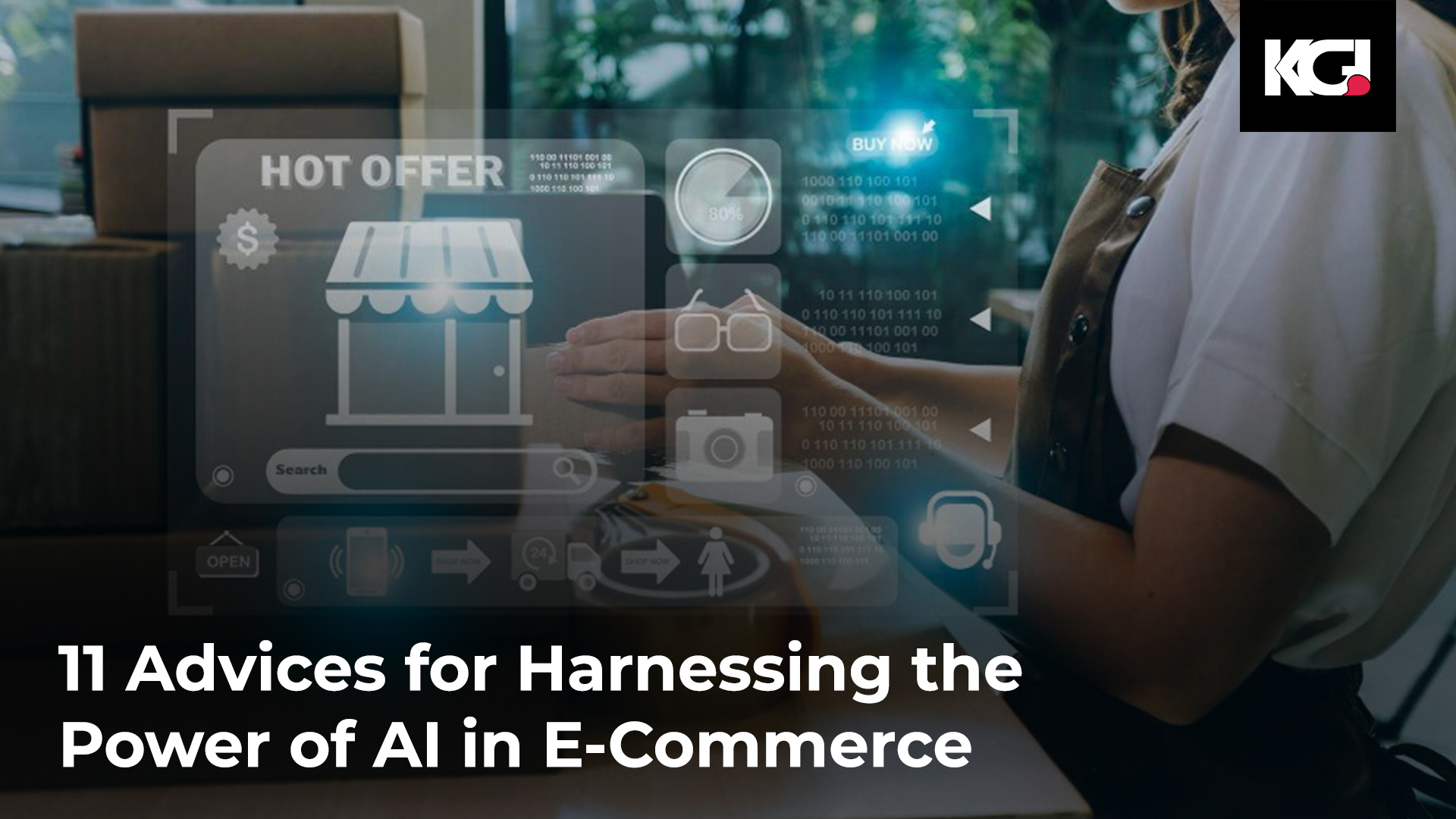In the fast-paced world of e-commerce, staying competitive and providing customers with a personalized, seamless shopping experience is paramount. This is where Artificial Intelligence (AI) comes into play, reshaping the landscape of online retail. With AI, e-commerce businesses can optimize operations, enhance customer engagement, and boost sales. In this article, we’ll explore how to leverage AI in e-commerce effectively.
1. Personalized Shopping Experience
AI algorithms analyse customer data, such as browsing history, purchase behaviour, and demographic information, to provide personalized product recommendations. These recommendations can significantly increase conversion rates and customer satisfaction by presenting shoppers with products they are more likely to buy.
2. Chatbots and Virtual Assistants
AI-driven chatbots and virtual assistants can provide instant, round-the-clock customer support. They can answer common questions, help customers track orders, and even assist in the product selection process. This improves customer service and frees up human resources for more complex tasks.
3. Inventory Management
AI helps optimize inventory management by predicting demand patterns and suggesting reorder points. This prevents overstocking or understocking, reducing storage costs and ensuring products are available when customers want them.
4. Price Optimization
Dynamic pricing algorithms powered by AI allow e-commerce businesses to adjust prices in real-time based on various factors, such as demand, competitor pricing, and customer behaviour. This maximizes profitability and ensures competitive pricing.
5. Fraud Prevention
AI can detect fraudulent transactions by analysing historical data and identifying anomalies. It helps reduce chargebacks and safeguards e-commerce platforms from cyber threats, ensuring the security of both customers and businesses.
6. Visual Search
AI-powered visual search technology allows customers to search for products by uploading images or taking pictures. This simplifies the search process, making it more convenient and intuitive for users.
7. Predictive Analytics
By analysing customer behaviour and market trends, AI can make accurate predictions about future sales and customer preferences. This enables e-commerce businesses to plan marketing strategies, product launches, and inventory management more effectively.
8. Customer Feedback Analysis
AI-driven sentiment analysis tools can analyse customer reviews and social media comments to gauge customer satisfaction and identify areas for improvement. This feedback can inform product development and marketing strategies.
9. Enhanced Search and Navigation
AI-driven search engines can understand natural language queries, improving the accuracy of search results. This helps customers find products quickly and easily.
10. Customer Retention
AI can identify at-risk customers and create targeted retention campaigns to keep them engaged. It can also segment customers for personalized marketing efforts.
11. Digital Marketing
In the realm of e-commerce digital marketing, AI excels in customer segmentation. By analysing a plethora of data points, AI can categorize customers into distinct segments based on their preferences, purchase history, browsing behaviour, and demographics. This granular segmentation allows marketers to create hyper-targeted marketing campaigns that resonate with specific audience segments. Whether it’s sending personalized product recommendations, tailored email marketing, or displaying customized ads, AI ensures that marketing efforts are finely tuned to individual customer needs. This level of personalization not only increases the effectiveness of marketing initiatives but also enhances the overall customer experience, leading to higher conversion rates and customer loyalty.
AI is a game-changer in the world of e-commerce. Its ability to analyse data, automate tasks, and provide personalized experiences enhances both customer satisfaction and operational efficiency. E-commerce businesses that harness the power of AI stand to gain a competitive edge in a rapidly evolving marketplace. As technology continues to advance, AI will undoubtedly play an increasingly significant role in shaping the future of online retail.


